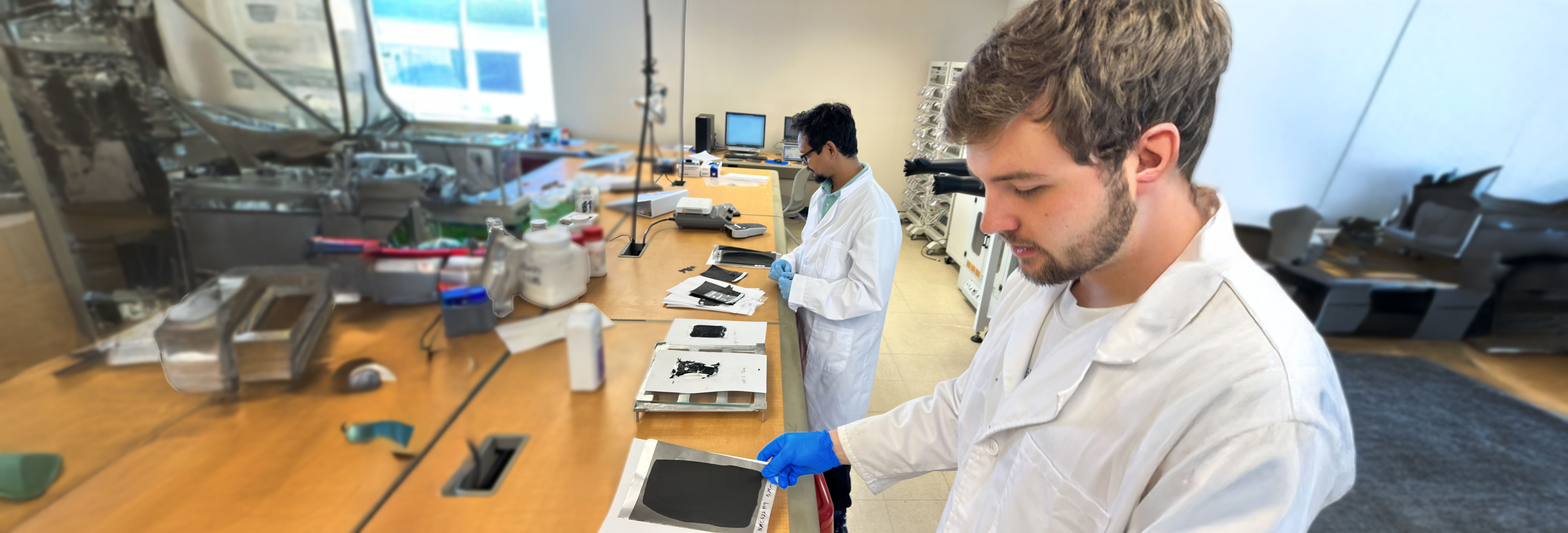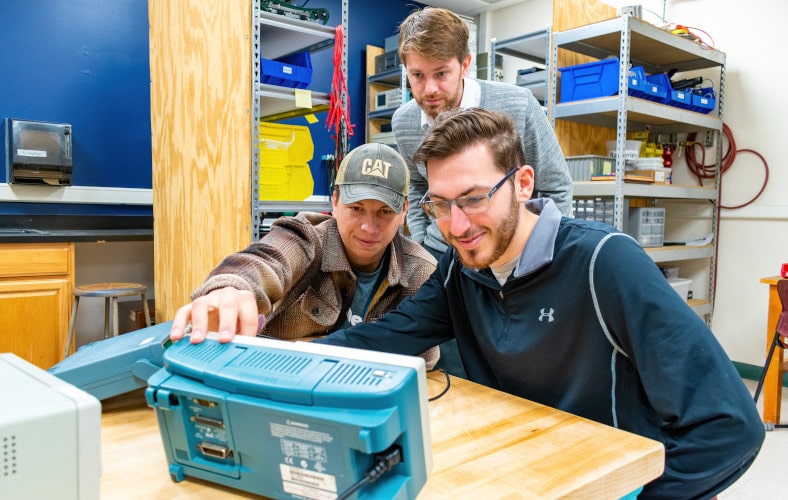Mechanical EngineeringMS

Leslie A. Rose Mechanical Engineering Department
Guided Virtual Tour of the Civil & Mechanical Engineering Building on the South Dakota Mines Campus
Video

Program Highlights
Department pageFeatured Research
- Design of Advanced Multifunctional Materials
- Biomedical Applications of Cold Atmospheric Plasma and Electroporation
- Electrochemical Energy Storage in Novel Lithium-sulfur Batteries
Featured Courses
- Applied Engineering Analysis
Potential Careers
- Design engineer
- Manufacturing
- Project engineering
- Aerospace engineering
Requirements
Application InstructionsEligibility Criteria
Bachelor's Degree in
- Mechanical Engineering
Credits
Course requirements: 24 credits
Research requirements: 6 credits
Total credits: 30
Non-thesis
Course requirements: 24-30 credits
Project requirements: 0-6 credits
Total credits: 30
Application Deadline
For Fall Enrollment: February 1
For Spring Enrollment: August 1
Thesis
TYPE
In-Person
ADMISSION MATERIALS
- Statement of purpose
- Official US transcripts or international transcript evaluation
- Official English proficiency scores
- 3 Letters of recommendation
- GRE scores not required
- Eligible for assistantships
- Tuition and fees
Non-Thesis
TYPE
In-Person
ADMISSION MATERIALS
- Statement of purpose
- Unofficial transcripts
- English proficiency scores
- Not eligible for assistantships
- Tuition and fees



Have more questions?
Mechanical Engineering MS/PhD:
Prasoon Diwakar
Program Coordinator
CM 320A
Doctoral Fellowships:
The Leslie A. Rose Department of Mechanical, through the generous donations of many alumni of the department, is now offering Mechanical Engineering Doctoral Fellowships. This program provides $40,000 fellowships for the first two years of doctoral studies: $25,000 in year one and $15,000 in year two. The fellowships are available to graduate students after they have completed their master’s degree at South Dakota Mines and are beginning their doctoral studies. If you wish to apply for a doctoral fellowship, complete the application any time before the beginning of the first semester of your doctoral degree, and submit it to Mechanical.Engineering@sdsmt.edu.